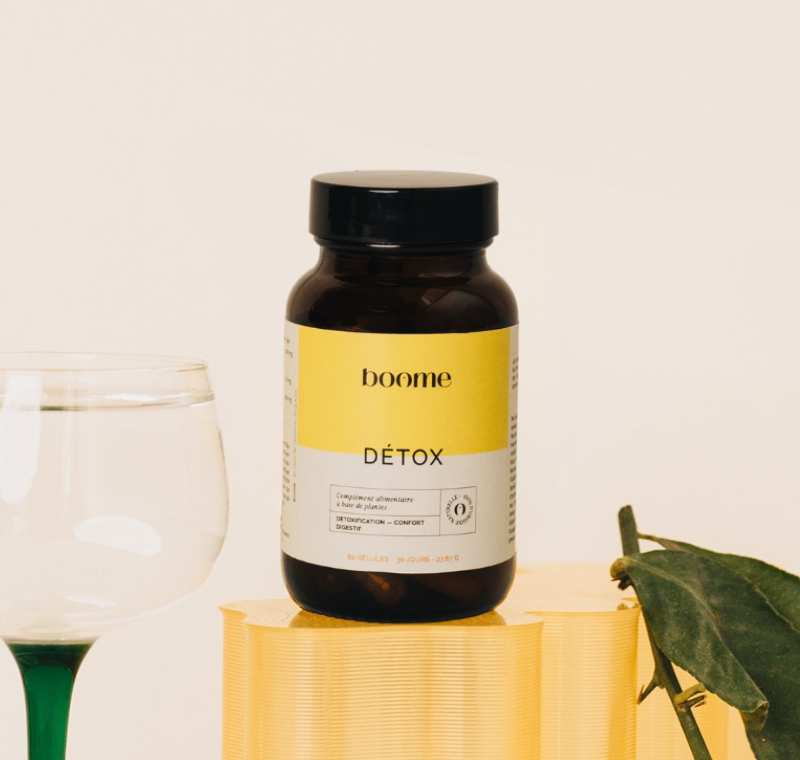
We tend to believe that fertile periods only occur mid-cycle. On paper, this is true. But the reality is quite different! Because every woman's periods are different, with her own rhythm and hormonal fluctuations. But then... Can you get pregnant during your period? Is there a risk of pregnancy if you have sex in the first few days of your cycle? Come on, we'll tell you everything in this article. Let's go!
Let’s go back to basics: how does the menstrual cycle work?
The menstrual cycle serves to prepare a woman's body for a possible pregnancy. It is a fairly complex process that lasts an average of 28 days, but can vary between 21 and 35 days. It is divided into three major phases: the follicular phase, the ovulatory phase, and the luteal phase.
1. The follicular phase
The follicular phase begins on the first day of menstruation and lasts until ovulation. During ovulation, the pituitary gland (the gland located at the base of the skull) releases FSH (follicle-stimulating hormone), which stimulates the growth of ovarian follicles. Of all these follicles, only one will "dominate" and continue to grow. The endometrium (the lining of the uterus) begins to thicken to accommodate a potential embryo.
2. The ovulation phase
The ovulatory phase most often occurs mid-cycle, around day 14. Under the influence of LH (luteinizing hormone), the egg sets out to meet a potential sperm in the fallopian tube. This is THE fertile period of your cycle! So if you want to get pregnant, this is the ideal time to have sex.
During this phase, you may notice changes in your cervical mucus. It becomes clearer, more elastic, and more abundant. Why? Because it creates the environment sperm need to make their way to the egg.
3. The luteal phase
The luteal phase follows ovulation and lasts until approximately day 28. The emptied follicle transforms into a corpus luteum, which secretes progesterone. This hormone continues to prepare the endometrium for the arrival of a possible embryo. If fertilization does not occur, the corpus luteum degenerates, progesterone levels drop, and menstruation begins. This is the beginning of a new cycle!
Menstrual cycles are natural and repetitive mechanisms. But each woman experiences variations that are unique to her: regular cycles, short cycles, irregular cycles, etc. Therefore, understanding how they work helps you better calculate your menstrual cycle. And therefore, better manage your fertile period to avoid any risk of unwanted pregnancy.
So can you get pregnant during your period?
Wondering if you can get pregnant during your period? The answer is yes, although it's rare. It all depends on the length and regularity of your menstrual cycle. We'll explain everything.
Depending on the length and regularity of your cycles
If your cycle is short (less than 25 days) or irregular, your risk of getting pregnant during your period increases. This type of cycle means your ovulatory phase may occur shortly after your period ends. Additionally, if you have irregular periods, it's difficult to predict your fertile window. So if this is the case for you, you increase your risk of getting pregnant during intercourse.
If you are on hormonal contraception
Are you using hormonal contraception? Then the risk of getting pregnant if you have sex during your period is very low, if not nonexistent. Some methods (like the birth control pill) inhibit ovulation and alter the uterine lining. However, simply forgetting to take them or using them incorrectly can reduce their effectiveness and increase the risk of ending up with a positive pregnancy test , so be careful!
If you are not using contraception
Without contraception, the risk of getting pregnant during your period, while low, is not zero. Sperm have a lifespan of several days, so if you ovulate early, fertilization during intercourse is still possible. Therefore, try to use reliable methods of contraception to avoid an unplanned pregnancy.
For example, you can check your cervical mucus or take your basal temperature (= lowest body temperature, when your body is at rest) to identify your fertile window. And thus avoid having sex during these few days.
Can you be pregnant and have your period?
Having your period and being pregnant is impossible
Having a period and being pregnant at the same time is biologically impossible. For one simple reason: periods occur because fertilization fails during sexual intercourse, and the endometrium breaks down. If you're pregnant, this process obviously doesn't happen.

Achat express
But pregnancy bleeding can be confused with menstruation: metrorrhagia
On the other hand, many pregnant women may notice the onset of bleeding during pregnancy and tend to mistake it for menstruation. Also called "metrorrhagia," this implantation bleeding usually occurs early in pregnancy (when the embryo is implanting in your uterus).
The case of pregnancy denial
Pregnancy denial is a phenomenon in which a pregnant woman... doesn't realize she's pregnant! She may continue to have bleeding, often interpreted as a period, and yet not experience the usual signs of pregnancy. She may carry on for several months (or even to term) without realizing it. But rest assured, this is very rare!
So, what's the bottom line? Well, getting pregnant during your period is rare, of course. But it's possible! And it depends mainly on the length of your fertile window and the regularity of your own cycle. So, be careful not to confuse vaginal bleeding during pregnancy with your period. When in doubt, of course, always consult a healthcare professional, who will be able to give you reliable and reassuring medical advice.









